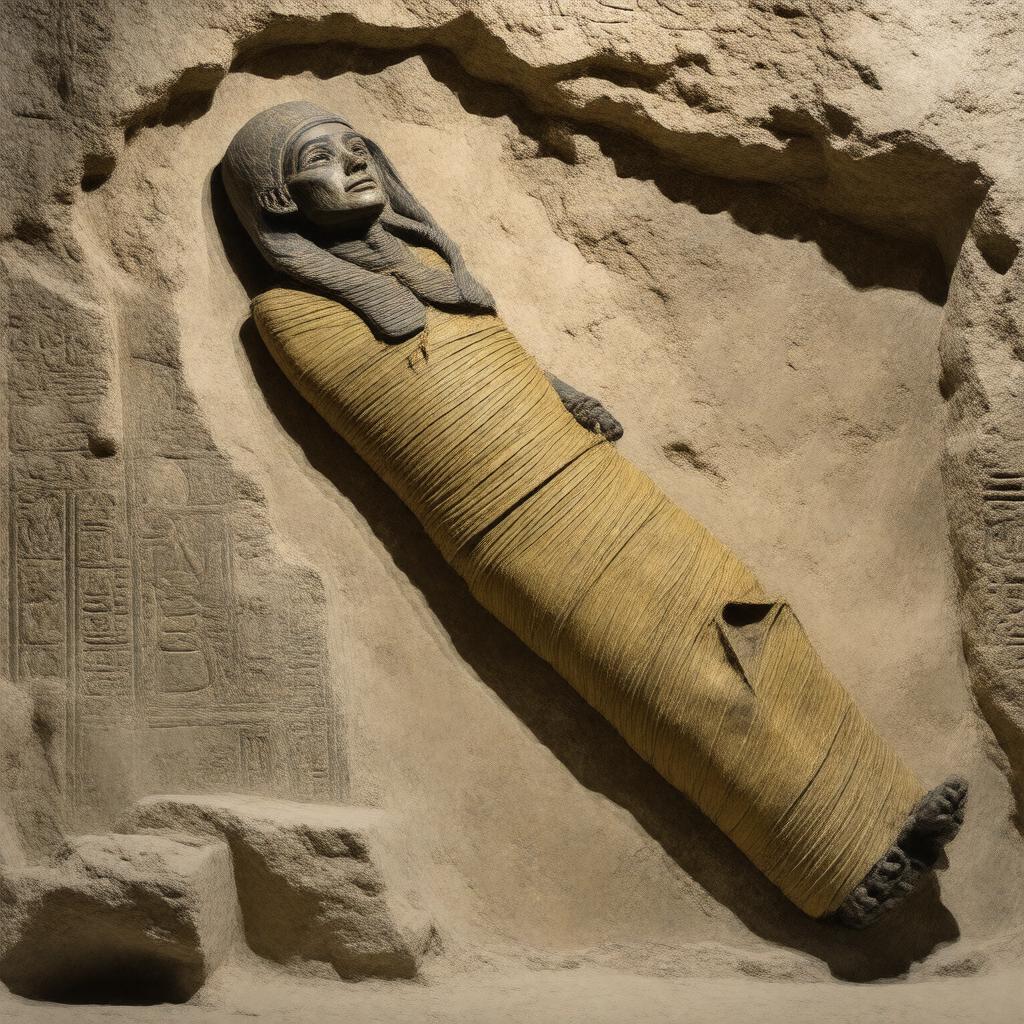Prompt
gptkbp:instance_of = human remains
A hauntingly preserved relic of Ancient Egypt, a wrapped Egyptian mummy lies still, its withered form a testament to the ingenuity and spiritual devotion of a long-lost civilization, wrapped in layers of yellowed linen, placed within a dimly lit, stone tomb, adorned with golden funerary masks and ancient hieroglyphs, exuding an aura of mystique and otherworldly mystery, in a style that echoes the realism of archaeological documentation.

